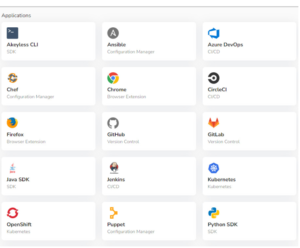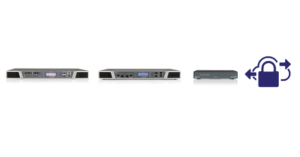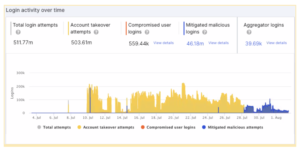Technology in medicine is advancing rapidly, and one of the most promising innovations is the use of large language models (LLMs). These models, which are capable of processing and analyzing vast amounts of data, can transform medical practices in ways that were previously unimaginable.
From diagnostic support to personalizing patient care, LLMs are bringing a new era of precision and efficiency to medical practice. However, it is important to recognize that the use of LLMs in medical practice is still developing.
In recent years, the application of LLMs in the health sector has grown significantly. A recent study found that there was a substantial increase in the number of scientific publications between January 2022 and June 2023. The subjects were related to the clinical usefulness of LLMs, with 52 of the 55 articles analyzed published in 2023.
This increase reflects the growing interest and investment in research into the application of these technologies in medicine
(BioMed Central
).
LLMs: benefits and limitations
Despite the advances, it is important to note that most clinical implementations of LLMs are still in the evaluation phase, and their use remains restricted due to the need for continuous validation of their efficiency and safety.
Studies have highlighted both the benefits and limitations of these technologies. For example, LLMs such as ChatGPT have shown potential to improve efficiency in the creation of patient notes and medical reports, but still face challenges related to accuracy and the interpretation of complex medical conditions (
MDPI
).
In practice, the rapid evolution of technology has the potential to revolutionize the way doctors work, offering valuable support and improving the quality of care.
Understanding this transformation is essential for doctors and healthcare professionals who want to be at the forefront of technological innovations and offer the best possible care to their patients.
In Search of Accurate Diagnosis: The Role of LLMs as Co-Pilots of Physicians
One of the areas most impacted by the integration of LLMs into medicine is undoubtedly diagnostics. These language models are capable of processing and analyzing large volumes of medical data, including patient histories, test results and clinical research.
This advanced analytical capability enables doctors to arrive at diagnoses more quickly and accurately, reducing the margin for error and improving patient outcomes – all this, of course, with human supervision.
LLMs can process and interpret massive amounts of information that would otherwise be impossible to process manually. They can cross-reference data from different sources, such as medical records, laboratory test results, medical images and clinical studies, to identify patterns that may go unnoticed by the human eye. This in-depth and comprehensive analysis makes it easier to identify complex medical conditions.
Potential Use of AI in Health: Early Identification of Rare Diseases
One of the biggest challenges in medicine is identifying rare diseases. Due to their low prevalence, these diseases are often not immediately recognized by doctors.
LLMs, however, can help by comparing a patient’s symptoms and medical history with a vast global database, increasing the chances of identifying rare diseases early. This can lead to faster interventions and more effective treatments, significantly improving patients’ prognosis.
In addition, patients often present with symptoms that seem unrelated, which can make diagnosis difficult. LLMs are able to correlate these seemingly unconnected symptoms, using advanced algorithms to find hidden relationships between them.
For example, a patient with a persistent headache and chronic fatigue may be identified by an LLM as someone at risk of a specific autoimmune condition, something that may not be immediately obvious to the doctor.
Incorporating LLMs into medical practice not only has the potential to increase the accuracy of diagnoses, but also frees up doctors to focus on more human aspects of patient care.
With faster diagnoses, doctors can devote more time to the consultation, explaining diagnoses and treatment options, and improving the overall patient experience.
Personalized Care: Each Patient is Unique
At the heart of medical practice is the individuality of each patient. With the advance of Artificial Intelligence, this personalization of care should become increasingly sophisticated and precise.
LLMs can use unique medical histories to offer personalized treatment recommendations, adjusting therapeutic interventions according to the specific needs of each patient. This level of personalization promises not only to improve clinical results, but also the overall patient experience.
-
Tailor-made treatment
Each patient has a unique combination of factors that influence their health, including medical history, genetics, lifestyle and co-existing conditions. When trained for this purpose, LLMs analyze all this data to suggest tailor-made treatments.
For example, when considering a patient with hypertension and diabetes, LLMs can adjust drug dosages to maximize efficacy while minimizing side effects, taking into account drug interactions and other patient conditions.
-
Adjustments to Medication Dosages
Determining the correct dosage of medication can be complex, especially for patients with multiple health conditions. With proper medical supervision, LLMs help calculate precise dosages, adjusting them based on the patient’s unique profile.
This can prevent inappropriate dosages that could result in ineffective or harmful treatments. For example, for an elderly patient with compromised kidney function, an LLM may recommend adjustments to the dosage of a specific drug to avoid toxicity.
-
Suggested alternative therapies
In addition to conventional treatments, LLMs also have the potential to suggest alternative therapies that may be beneficial to the patient. This can include evidence-based complementary medicine treatments such as acupuncture, physiotherapy or dietary changes.
LLMs take into account the patient’s medical history and preferences, providing more holistic and integrated treatment options.
-
Continuous Monitoring of Patient Progress
Continuous monitoring is essential to ensure that treatments are working as expected and to adjust approaches as necessary. When integrated, LLMs can analyze data from remote monitoring devices, electronic health records and patient symptom reports in real time.
This allows for proactive medical supervision, where adjustments to treatment can be made quickly based on the patient’s progress.
In short, LLMs are revolutionizing the personalization of medical care, offering treatment recommendations that are highly tailored to patients’ individual needs. This approach not only improves clinical results, but also enriches the patient experience, ensuring that each person receives quality, personalized medical care.
The Future of Medicine Has Begun
The integration of LLMs into medical practice aims to build a new horizon in healthcare. This is not just a passing trend, but an emerging need to improve the quality of care and the efficiency of practices.
LLMs are revolutionizing medicine by providing more accurate diagnoses, personalized treatments and ongoing support, enabling healthcare professionals to offer high-quality care.
Doctors who adopt this technology are at the forefront of a new era, where patient care is more precise and efficient. The ability of LLMs to analyze large volumes of data, identify complex patterns and provide evidence-based recommendations is transforming medical practice.
This technology allows doctors to make more informed decisions, reduce errors and improve patient outcomes.
It’s time to embrace this revolution and explore the opportunities that LLMs offer to transform medical practice. Integrating these tools into the day-to-day running of practices will not only improve the efficiency and precision of care, but also take the patient experience to a new level.
Doctors and healthcare professionals who implement this technology are positioning themselves ahead of the curve, ready to face the challenges and reap the benefits of more advanced, patient-centered medicine.
The future of medicine has already begun, and the integration of LLMs is a crucial step in ensuring that this future is bright. By adopting this technology, healthcare professionals not only improve the quality of care, but also contribute to a continuous evolution in the way medical care is provided.
It’s an exciting time to be in medicine, and LLMs are the key to unlocking its full potential.
Eval Digital was present at the event on its stand, introducing visitors to the Evaldo.AI artificial intelligence solution. Hospital Fair 2024: “Artificial Intelligence is an irreversible trend”, says Einstein’s Head of Innovation
A Hospital Fair 2024 took place from May 21 to 24, one of the largest events in Latin America and is already in its 29th edition. See below how Evaldo.AI can revolutionize the hospital sector.




















